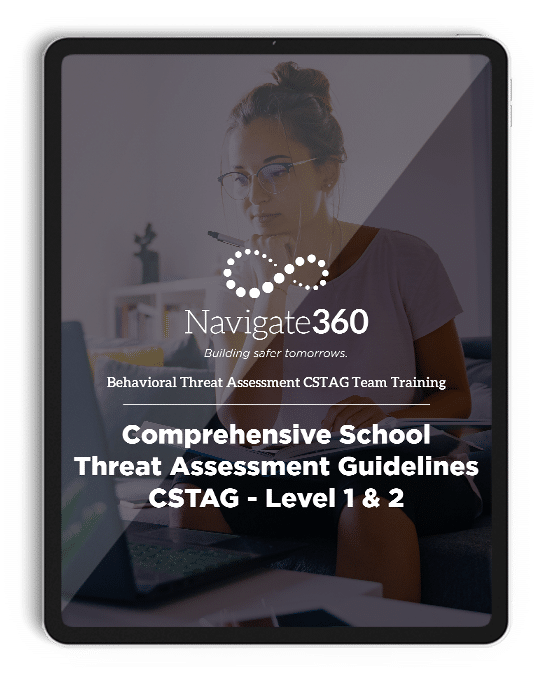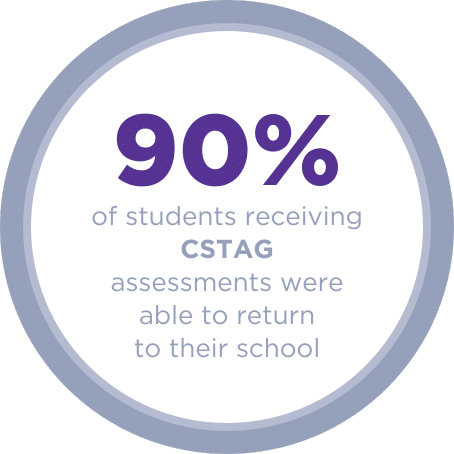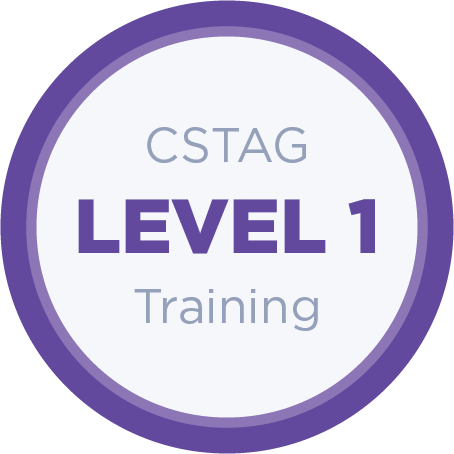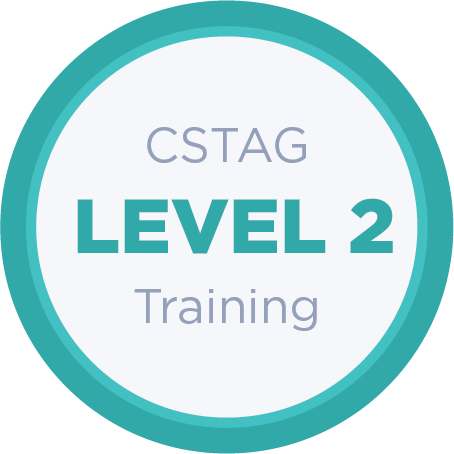CSTAG Behavioral Threat Assessment Training
Equip Teams to Identify, Assess & Support Students Who Exhibit Challenging Behaviors
Implementing effective behavioral threat assessment protocols in schools is paramount to ensuring the safety and well-being of students, staff, and the entire school community. Threat assessment is not only about identifying potential threats, but also about preventing violence and promoting a supportive environment where individuals feel safe to report concerns.
Exclusive Comprehensive School Threat Assessment Guidelines (CSTAG) Training by Navigate360 in partnership with Dr. Dewey Cornell delivers:
- Improved Risk Identification: Empower team members with the knowledge and skills to identify and assess early warning signs and risk factors associated with threatening behavior, enabling timely intervention and prevention efforts.
- Expanded Expertise: Build expertise within the team by providing specialized training on threat assessment principles, protocols, and best practices, empowering members to effectively fulfill their responsibilities with fairness and fidelity.
- Proactive Prevention and Intervention Strategies: Equip team members with proactive prevention and intervention strategies, enabling them to identify and address potential threats before they escalate into harm.

Navigate360 Customers
Building Confidence with CSTAG Training
Overview and Benefits
Comprehensive School Threat Assessment Guidelines (CSTAG)
Key elements of successful behavioral threat assessment include establishing a multi-disciplinary team, following clear procedures, fostering a culture of trust and collaboration, ensuring access to appropriate resources and support services, and providing comprehensive training for staff. With Navigate360, you can provide training that prepares your teams to implement the Comprehensive School Threat Assessment Guidelines (CSTAG) model.
Designed for Today’s Schools: In today’s dynamic K-12 environment, where time is at a premium and flexibility is necessary, our training program combines the best of both online and in-person (live or virtual) learning.


CSTAG Level 1 Training – Revised & Enhanced for 2024
Modality: A two-part asynchronous eLearning series
Duration: Revised design makes learning efficient and faster to complete with a 50% improvement from the prior version.
Outcomes: Participants will build their background knowledge on threat assessment, learn strategies for executing a threat assessment, and receive an in-depth presentation of the CSTAG program, delivered by four leading experts on school threat assessment. This course is an enhanced and updated version of the prior Level 1 course. New and refreshed modules introduce content to help ensure equity, fidelity, and fairness in threat assessment.
Basic Module includes:
- Updated training materials
- New case studies with videos of student interviews
- Video demonstration of team meetings
- New research findings
- Enhanced format for speedier completion
New Enhanced Module covers:
- Identifying threat assessment best practices & common errors
- Making effective use of a safety interview
- Following FERPA requirements in threat assessment
- Recognizing the importance of fairness and equity
- Applying knowledge in a complex case exercise

CSTAG Level 2 Training
Modality: Instructor led on-site, or virtual workshop conducted by Dr. Cornell or one of his trainers.
Duration: 4 hours
Outcomes: Participants work together in teams to apply what they learned in Level 1 through a series of case exercises using the CSTAG model. As participants work through the cases, they become increasingly complex and require careful analysis and collaborative teamwork to solve.
Completing the two tiers of training will enable your school-based threat assessment teams to evaluate and manage complex situations with a high degree of accuracy and efficiency.

CSTAG Threat Assessment Course for Law Enforcement in Schools
Style: Asynchronous, online
Duration: 1 hour, at your own pace
Outcomes: Law enforcement officers will learn about behavioral threat assessment and their role on a multidisciplinary threat assessment team, as well as the Comprehensive School Threat Assessment Guidelines (CSTAG) model and how it is used in a school setting.

CSTAG for School Staff
Style: Asynchronous, online.
Duration: 1 hour, at your own pace
Outcomes: School staff will receive an overview of the Comprehensive School Threat Assessment Guidelines (CSTAG) model and learn how they can support behavioral threat assessment and violence prevention efforts in their schools.
Building a Successful Team
What to Expect from CSTAG Team Training
Establishing and maintaining an effective multidisciplinary team requires a commitment by both team members and the school community. CSTAG training provides the support your threat assessment team needs to successfully fulfill that commitment.

Knowledge Growth
Team members will experience a significant increase in their knowledge of school safety and behavioral threat assessment. This translates into a greater level of confidence in their ability to help students who might be headed down a path of violence.
Learning Together Effectively
Regardless of prior experience or discipline, all team members will have a common knowledge base and perspective. Your teams will know how to work together effectively and efficiently.
Making Students Priority #1
Team members will achieve a high degree of threat classification accuracy and agreement. This protects teams from overreacting or underreacting to student behavior and ensures students get the help they need.
What Do Customers Think of CSTAG Level 1 & 2 Training?
Subject Matter Expert Spotlight
Dewey Cornell, Ph.D.
Navigate360 is proud to partner with Dr. Cornell, a forensic clinical psychologist and professor of education at the School of Education and Human Development at the University of Virginia. He is the principal author of the evidence-based school behavioral threat assessment model known as Comprehensive School Threat Assessment Guidelines (CSTAG).
Dr. Cornell worked alongside our development team to incorporate the CSTAG methodology into our case management software. His direct involvement ensures fidelity of the process and provides access to his specific guidance throughout the system. Dr. Cornell also worked directly with our curriculum team to create the CSTAG Level 1 and Level 2 training programs available exclusively through Navigate360.
“Whenever there is concern about a student, there is no way schools can avoid doing some kind of threat assessment; it’s a question of how they are going to do them. Schools need an evidence-based approach that is proven to be safe, fair and effective.”
– Dewey G. Cornell, Ph.D.
Katherine Schweit
Katherine Schweit is an attorney, security consultant and retired FBI special agent. As an FBI Special Agent Executive, she created the bureau’s Active Shooter program after the terrible tragedy at Sandy Hook Elementary School. She is also the author of Stop the Killing – How to End the Mass Shooting Crisis.
Schweit worked alongside the Navigate360 team and Dr. Cornell to develop the CSTAG for Law Enforcement training course to help law enforcement understand their role on a multidisciplinary school behavioral threat assessment team.

Dr. Sharmila Mehta
Dr. Sharmila Mehta is the Director of Inpatient Child and Adolescent Psychology for the Cambridge Health Alliance/Harvard Medical School. She has experience in psychological and threat assessments for adolescent inpatients and is a national school threat assessment trainer and consultant to schools and agencies serving youth for School Threat Assessment Consultants.

Dr. Talisha Bond
Dr. Talisha Bond is a clinical psychologist and school psychologist for DC Public Schools. She was a member of the UVA Youth Violence Project research team and contributed to the research and development of the CSTAG model, and now maintains her own private practice in Maryland, working with children from 4-18 years old.

Frequently Asked Questions
Looking for answers about CSTAG Team Training?
If you are looking for answers about Comprehensive School Threat Assessment Guidelines (CSTAG) Team Training, please read our Q&A section. If you still have questions, please reach out to us today.

What is CSTAG Team Training and does my school need it?
Effective teams need excellent training. Exclusively through Navigate360, you can provide the most complete behavioral threat assessment training that prepares your teams to implement the Comprehensive School Threat Assessment Guidelines (CSTAG) model with high fidelity.
What does the acronym "CSTAG" stand for?
CSTAG stands for Comprehensive School Threat Assessment Guidelines.
What makes CSTAG training unique from other behavioral threat assessment team training?
Navigate360 is the only school safety partner to provide CSTAG eLearning curriculum supported by more than 20 years of research, including controlled studies demonstrating safety and effectiveness.
What makes Navigate360 different from other safety solution providers?
Navigate360 is the leader in holistic safety and wellness solutions. Our revolutionary model spans the full spectrum of safety, including threat detection and prevention, mental health and wellness, and safety management and preparedness – backed by research and developed by industry experts. We provide the tools necessary to save and enhance lives.
What is the role of an SRO or law enforcement in relation to our behavioral threat assessment team?
Let’s be clear about the role of the SRO or law enforcement as part of the multidisciplinary behavioral threat assessment team.
Effective training clarifies and limits the role of law enforcement while also identifying how to leverage their knowledge, skills and access to specific information. In fact, when law enforcement is part of a collaborative BTA team, law enforcement actions (e.g., arrest, incarceration or court charges) rarely occur.
* Cornell, D., Maeng, J., Huang, F., Shukla, K., & Konold, T. (2018). Racial/ethnic parity in disciplinary consequences using student threat assessment. School Psychology Review, 47, 183-195. doi: 10.17105/SPR-2017-0030.V47-2
CASE STUDY
Creating a Successful Behavioral Threat Assessment Program
It’s difficult to imagine a more essential time to identify and manage those students who may be headed down a path of violence. Eliminate some of the stress and shorten the learning curve as you hear from your peers on how to establish and nurture a successful BTA program. From understanding the vocabulary and gaining buy-in to training and fidelity, we’ll cover all the bases.
Additional Resources
Guide to Student Behavioral Intervention for K-12 Schools
Learn how schools are turning challenging behaviors into learning opportunities.
Learn MoreDetecting Harmful Signals in Digital Spaces
Learn how to take a proactive approach to digital safety across platforms, including web filtering and social media and email scanning.
Watch NowCreating a Holistic Culture of Safety
A holistic culture of safety that supports the physical, social and emotional needs of your school community can make all the difference given today’s challenging conditions.
Watch NowContact Navigate360
Request a Demo of CSTAG Behavioral Threat Assessment Training
Discover how you can use CSTAG to improve school violence prevention and awareness. Speak with one of our Safety Specialists today.


